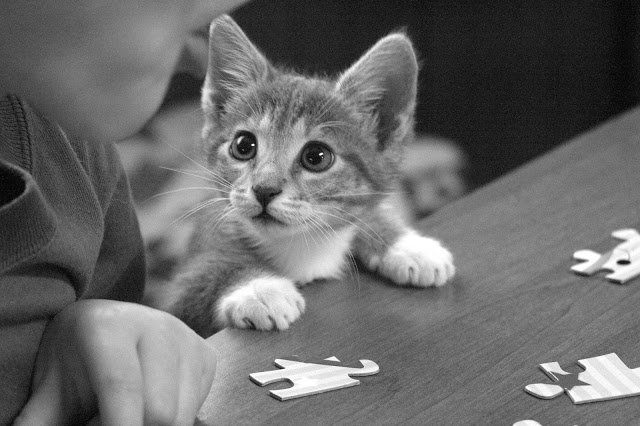What can be easier than the Nominative case? It is the basic, the original form of a noun, and its major role in a sentence is to be a subject.
This is what I thought until I opened a Russian as Foreign language test guide (Требования по русскому языку как иностранному). Surprisingly, the authors of the guide come up with 18 (eighteen) different meanings of the Nominative case. Wow.
The guide is in Russian, so I’ve translated those eighteen points into English, and, for some of the points, I have to cite the original examples, because otherwise they would be too confusing. So here is what the Nominative case is for (nouns in the Nominative are bold):
- The subject in active voice clause; the example was somewhat questionable: Нина смотрит телевизор. Nina is watching TV. Okay, watching TV could be active.
- The subject of condition; another questionable example: Мальчик спит. The boy is sleeping; How watching TV is more active than sleeping?
- A person/ an object identified by some characteristics: День тёплый. The day is warm.
- General identification of a person or a thing: Это Нина. This is Nina. Это торт. This is a cake.
- Specific identification of a person or a thing: Её зовут Нина. Her name is Nina.
- Addressing somebody by one’s name: Нина, смотри! Nina, look!
- Characteristics of a person or a thing (somewhat overlapping with number 3, but slightly different type of constructions in Russian): Пётр – скрипач, Peter is a violinist.
- Characteristics of an event: Сегодня концерт. The concert is today.
- The presence or availability of something in a place, an equivalent of ‘there is/ are’: В доме есть подвал. There is a basement in the house.
- Having something: У меня есть кот. I have a cat.
- Dates; the example in the guide is a question: Какое сегодня число? What date is it today?
- The object one needs/ desires: Нине нужен торт. Nina needs a cake.
- The object of comparison: Кот умнее собаки. The cat is smarter than the dog.
- Events, actions in some specific phase: Концерт начинается в шесть часов. The concert starts at six.
- Day of the week, month, season etc. (I think, it overlaps with numbers 8 and 11): Сегодня понедельник. Today is Monday.
- A thing or a person in a passive voice: Концерт сыгран в главном зале страны. The concert was played in the country’s main concert hall.
- Physical or emotional conditions: У Нины ветрянка. Nina has chickenpox.
- The object of one’s evaluation: Нине нравится торт. Nina likes the cake.
After reading this list I thought, if I were studying Russian, I would panic and quit. If you are about to panic – please don’t, not yet! The good news is that you don’t have to memorize all these “meanings”. Instead, you can simply understand what the Nominative case does.
As usual, etymology helps a lot. The word “Nominative” is from Latin nominativus “relating to naming”. And the Russian name for this case is Именительный, from имя, name. This case names or, if you wish, labels things (people, events, conditions, abstract ideas etc). Nominative is for naming. That’s it. If you look through the list one more time, you’ll see that in most examples above the Nominative case simply names something or someone. The list is unnecessary long and confusing.
There are, however, some tricky expressions, that are completely different in English, and so English speakers often make mistakes there. You have to learn those constructions one by one, but there are not so many. I’ve come up with only five of them, and here they are:
- Stating that a place has something (the equivalent of ‘there is’/ ‘there are’ in English):
В + N in Prepositional + есть + N in Nominative.
В нашем доме есть гараж. There is a garage in our house. - Having something:
У + PRO/N in Genitive + есть + N in Nominative.
У Нины есть торт. Nina has a cake. - Speaking about physical and emotional conditions:
У + PRO/N in Genitive+ N in Nominative.
У брата – счастье. My brother is happy. - Expressing needs:
PRO/N in Dative + нужен (m)/ нужна (f)/ нужно (n) + N in Nominative
Мне нужна твоя поддержка. I need your support. - Expressing likes and dislikes:
PRO/N in Dative + нравится + N in Nominative
Всем нравится торт. Everybody likes the cake.
And the last thing for today. You can understand cases, but memorizing their endings is a real pain. These Grammar Table Bookmarks may help you to learn Russian cases a bit faster and easier. Good luck!
Photo by David Kessler

